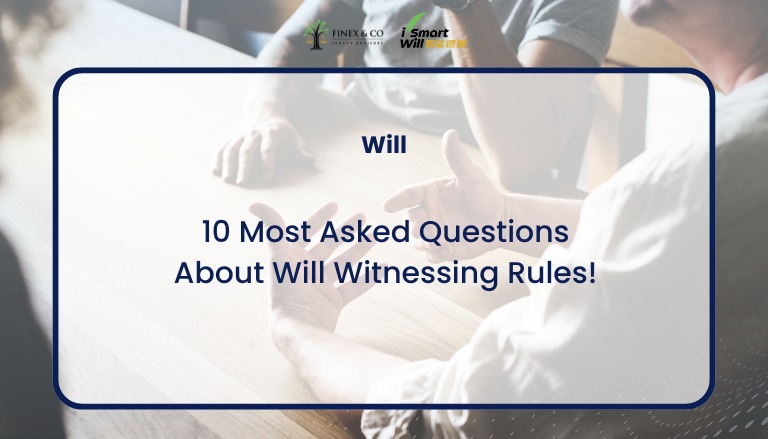- Can the Witnesses and Testator Sign the Will at Different Times?
No, they can’t. According to Section 5 of the Wills Act 1959, everyone involved—the person making the will (the testator) and the witnesses—must sign at the same time. This ensures everything is done properly and legally.
- Can a Beneficiary or Their Spouse Be a Witness?
Absolutely not! If a beneficiary or their spouse signs as a witness, they lose their right to receive anything from the will. However, the will itself remains valid—it just means that witness won’t get their share. (This is under Section 9 of the Wills Act 1959.)
- Do Witnesses Need to Know What’s in the Will?
Nope! Witnesses don’t have to read or know the contents of your will. The law only requires that they watch you sign and then sign it themselves—all at the same time, in each other’s presence.
- Do witnesses need to appear in Probate Court?
No, witnesses to the will don’t usually have to appear in court. Instead, they’ll need to sign an affidavit confirming that they saw the deceased sign the will and that the signature is genuine.
If one of the witnesses can’t be found, the executor’s lawyer will do their best to track them down. If they still can’t be located, the executor’s lawyer can submit an affidavit explaining that all reasonable efforts were made. In most cases, the court will still approve the Grant of Probate with this affidavit in place.
- Can an Executor be a witness to the will?
Yes, an executor can act as a witness—as long as he/she is not also a beneficiary in the will.
- Why is a witness important?
Witnessing a will isn’t just about signing a document—it’s about playing a key role in ensuring everything is done properly. By being present, witnesses confirm that the person making the will signed it willingly and understood what they were doing. This helps prevent future disputes and keeps the will legally secure.
- Can an adult child witness their parent’s will?
Yes, in Malaysia, an adult child can legally witness their parent’s will. However, while the law allows it, having a family member as a witness could raise questions about fairness or potential influence. To avoid any doubts, it’s often better to choose an independent witness.
- Can a witness sign electronically or remotely (e.g., via Zoom)?
No, under the Wills Act 1959, witnesses must be physically present and sign the will in each other’s presence and in the presence of the testator. Malaysia does not currently allow remote or electronic witnessing of wills, even with video calls.
- Is it necessary for the witness to sign every page of the will?
While not legally required under the Wills Act 1959, it’s highly recommended for both the testator and the witnesses to sign each page of the will. This helps confirm that the entire document was reviewed and signed at the same time, preventing later disputes about page substitution or missing sections.
- What if a witness passes away before the testator?
The will remains valid even if a witness dies before the testator. A witness’s role is only to confirm that the will was properly signed at the time of execution. However, if the will is ever contested, it may be harder to verify the signing process if the witnesses have already passed away. That’s why it is advisable to choose witnesses who are younger than the testator, or at least not significantly older, to increase the chances they’ll still be around if verification is ever needed.















